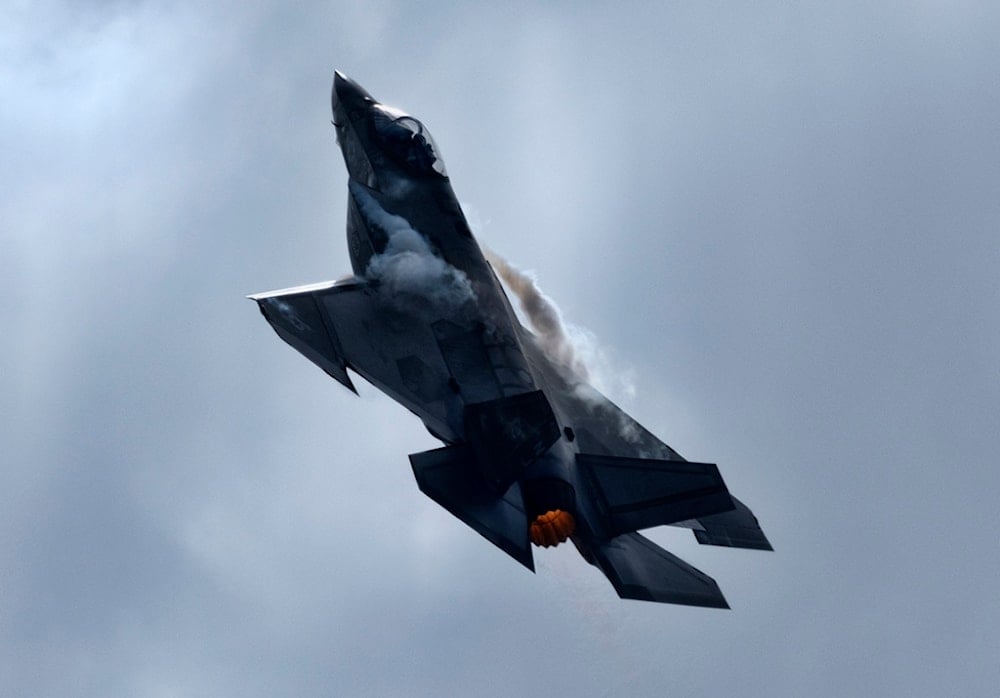Cost of F-35 program rises to $485Bln, total to exceed $2Tln
The US armed forces and their allies currently operate over 1,000 F-35s, with plans to eventually have 3,000 in service, as per reports.
-

A USNF-35C, the first and world's only long-range stealth strike fighter explicitly for carrier operations, performs during the Pacific Airshow at Huntington Beach, Calif., on Oct. 1, 2023 (AP)
The total cost to develop and produce the Lockheed Martin F-35 Joint Strike Fighter, already the most expensive military and aircraft program in history, has increased by nearly 10% to $485 billion, according to US media reports on Tuesday.
Bloomberg, citing the Pentagon's F-35 program office, reported that the majority of the additional $43 billion was allocated to upgrading the F-35 engine core and improving its thermal management systems.
The report further stated that the US armed forces and their allies currently operate over 1,000 F-35s, with plans to eventually have 3,000 in service.
Additionally, a May report from the GAO revealed that the Pentagon estimates development, maintenance, and operational costs for the F-35 fleet through 2088 will exceed $2 trillion.
Read more: Delayed upgrades pose weather damage risk to US' new F-35 fighters
Ongoing delays
The F-35 Joint Strike Fighter program has faced multiple delays since its inception, driven by a range of technical and logistical issues.
Persistent software and hardware challenges, particularly with the advanced Block 4 software upgrade, have slowed the development process significantly.
The F135 engine, central to the aircraft's performance, has also experienced overheating and other technical problems, which required additional fixes and testing.
These delays have contributed to significant cost overruns, pushing the total development and production costs to $485 billion, with lifetime costs expected to exceed $2 trillion.
Read more: Upgraded F-35 jets fail to meet requirements, put on hold
The program's supply chain complexity, which involves contractors across multiple countries, has also been a source of disruptions, particularly during the COVID-19 pandemic.
Flight testing also revealed performance flaws that required modifications, adding more time to the certification process.
Additionally, international partnerships, including the removal of Turkey from the program, created further delays in production.
Despite these issues, over 1,000 F-35s are now in operation, with plans for 3,000 eventually in service, though ongoing technical upgrades may continue to affect timelines.

 2 Min Read
2 Min Read








